Unlock a Day Trip — Navigating Through, Episode 1
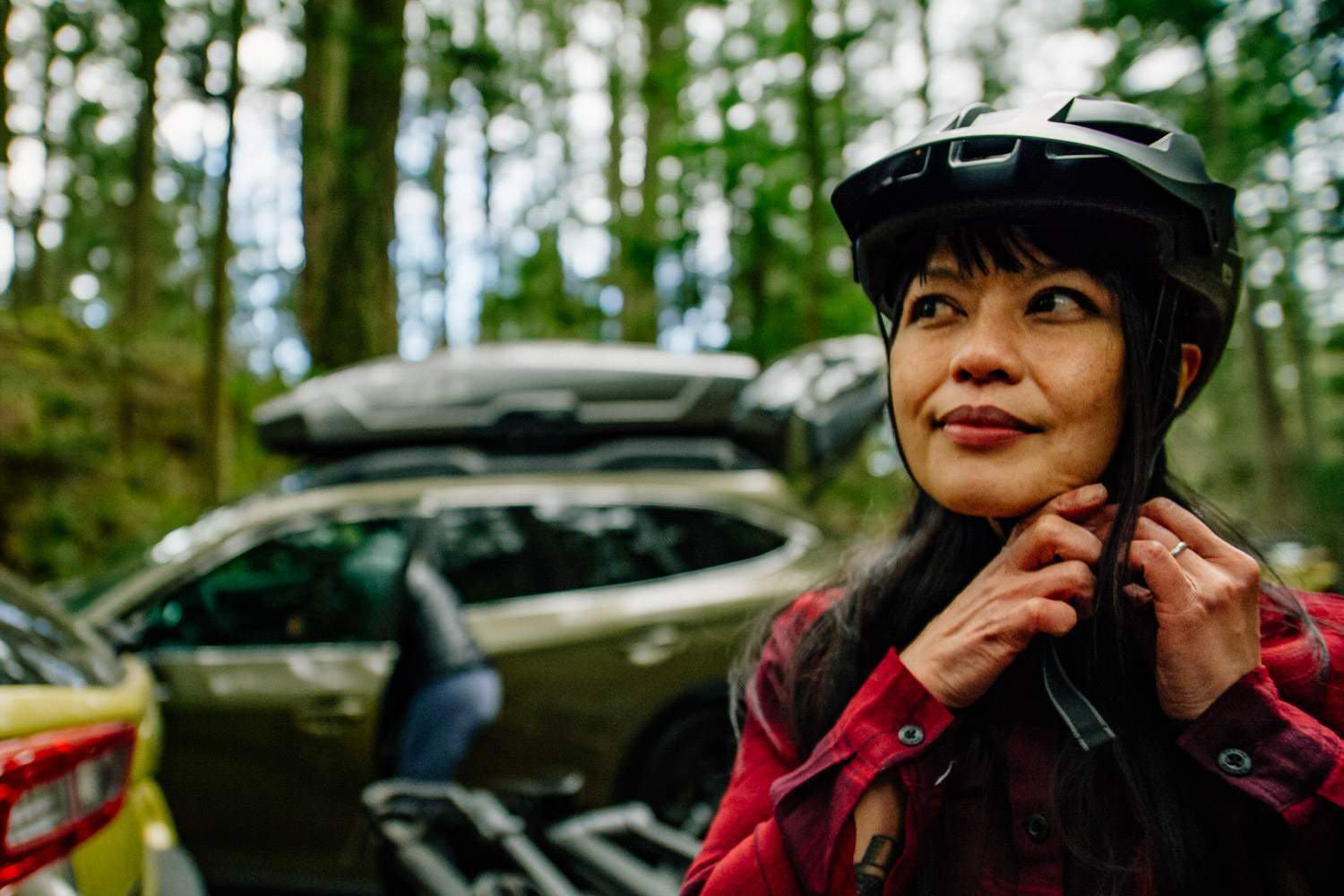
Navigating Through: Episode 1
Unlock a Day Trip
You don’t have to head out on a multi-day road trip to enjoy the benefits of time away: a micro-adventure can be just what you need to help you reset in your own backyard. Host Gale Straub heads out for a New Hampshire coast-to-mountains and back day trip and reflects on the ways her relationship with travel and adventure have shifted post-pandemic with the help of other creative women. Stay tuned—you’ll hear more from these women and more in the rest of the series.
About the series:
This special She Explores miniseries is made in collaboration with Subaru.
The last year has been marked by loss and longing, but it hasn’t dampened our sense of adventure or our tendency to dream: of far off places, of time in movement with loved ones. And throughout, there’s been comfort in knowing a place we feel most like ourselves: behind the wheel, on the way to our favorite local trailheads, swim spots, and mountainsides.
With our eyes in the rear view as much as they are looking at the road ahead, through this four part series we’ll tell stories about finding adventure locally, reconnecting with those close to us, and taking the side roads that bring us back to what drives us: connection, purpose, and creativity.
Banner image of Gritchelle Fallegson
Find the episode below, on Apple Podcasts, Spotify, Stitcher, or wherever you stream podcasts.
Featured in this episode: Eunice Beck, Faith Briggs, Anna Brones, Paulina Dao, Gritchelle Fallesgon, & Gale Straub.
Hosted by Gale Straub
A production of Ravel Media
Resources
- Featured in this episode:
- Definition of a Micro-Adventure
- Learn more about the Subaru Outback Onyx
- Learn more about the Subaru Crosstrek Sport
All Four Episodes of Navigating Through Are Available Now Wherever You Listen to She Explores
Music by Josh Woodward
Podcast Art by Hailey Hirst
Featured in this episode:
Eunice Beck
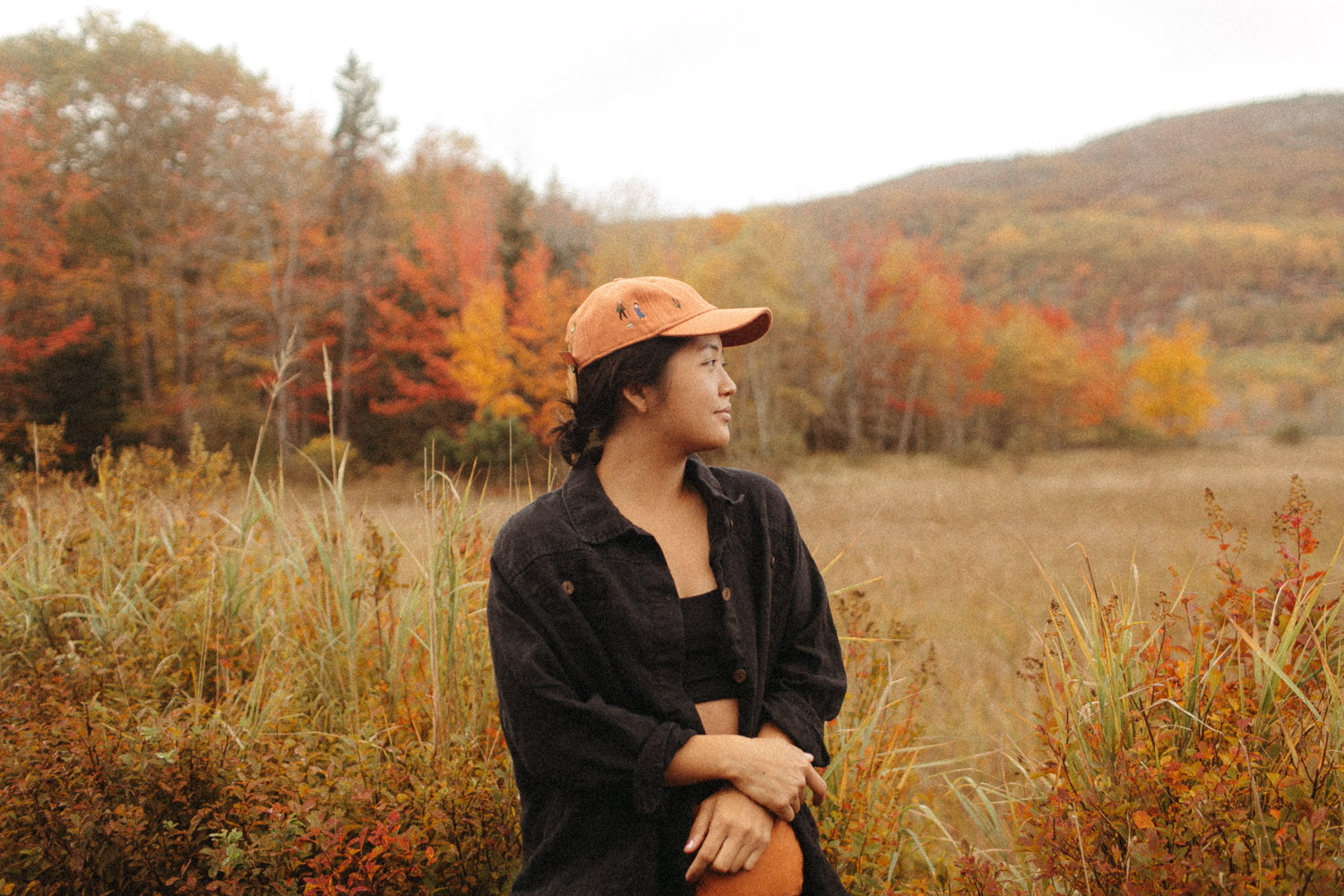
Faith Briggs
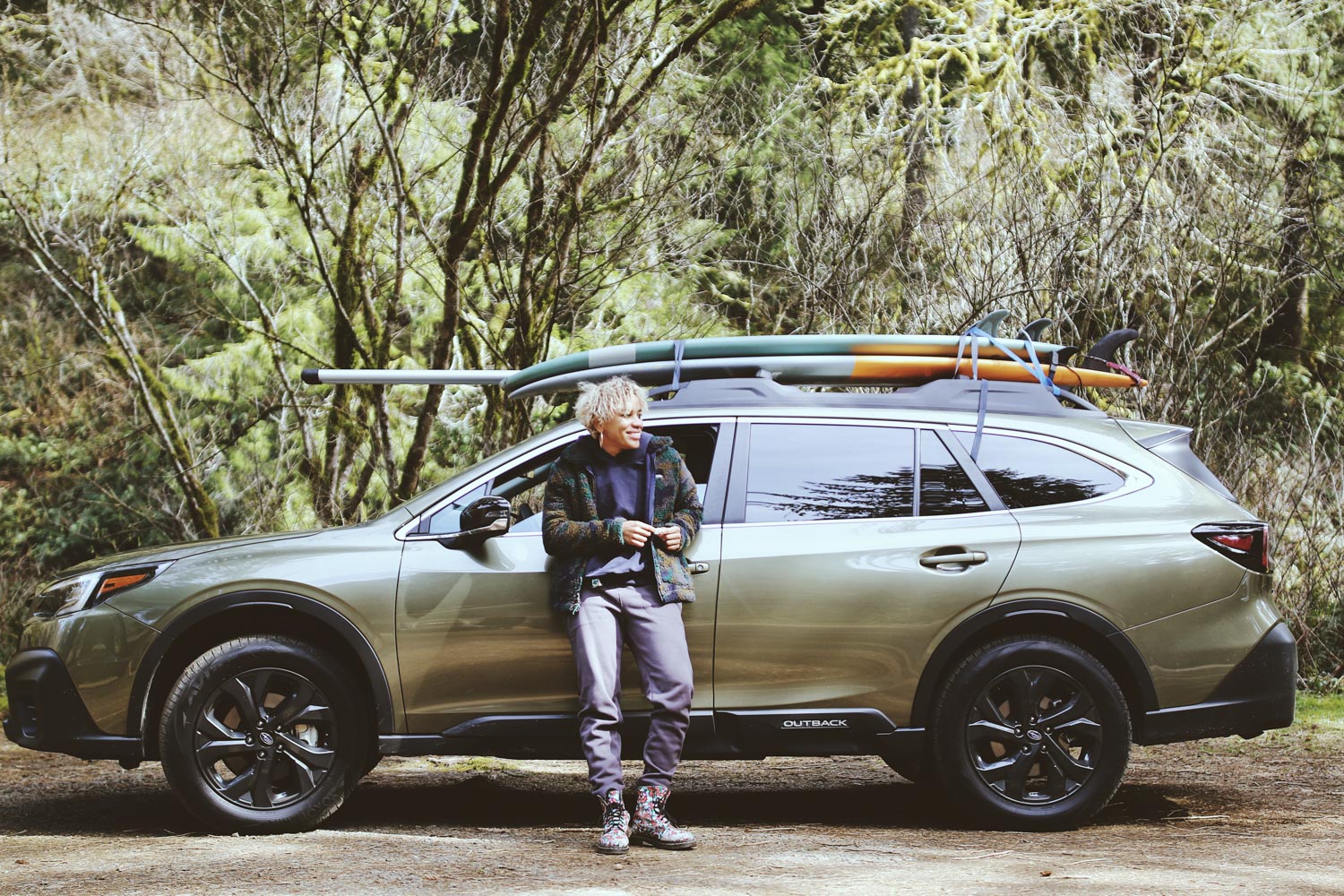
Photo by Amari Rose @amari_rose
Anna Brones
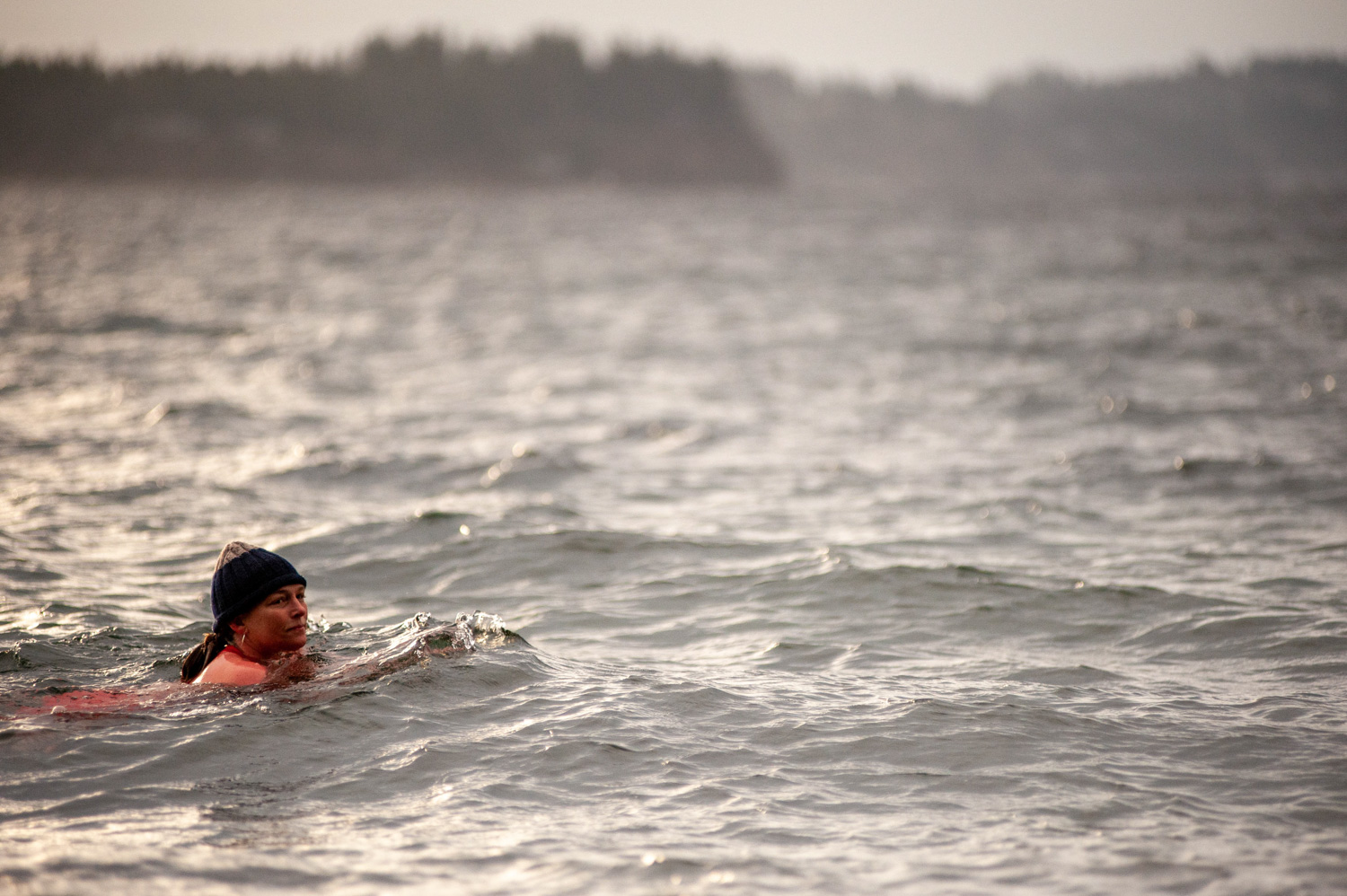
Paulina Dao
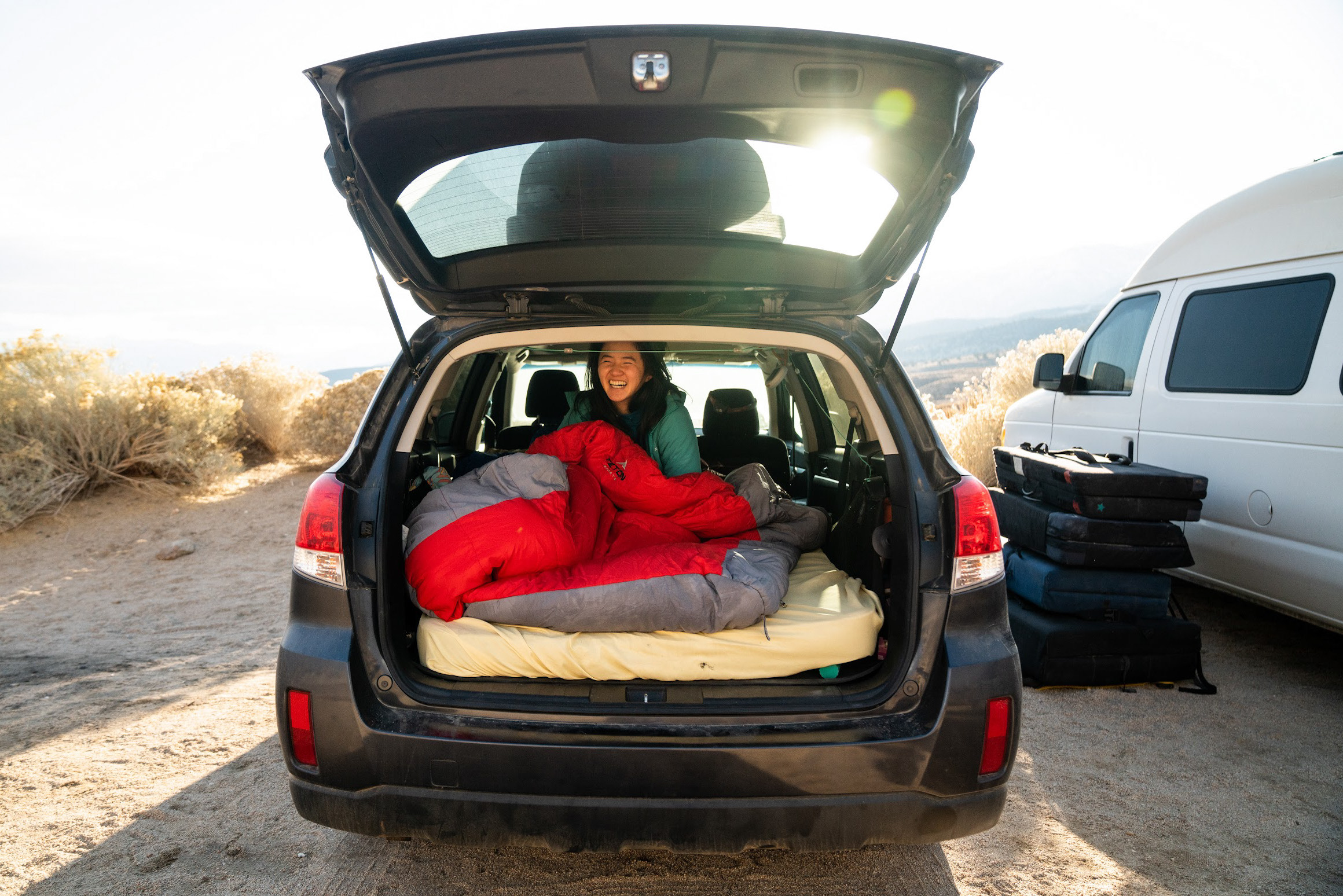
Gritchelle Fallegson
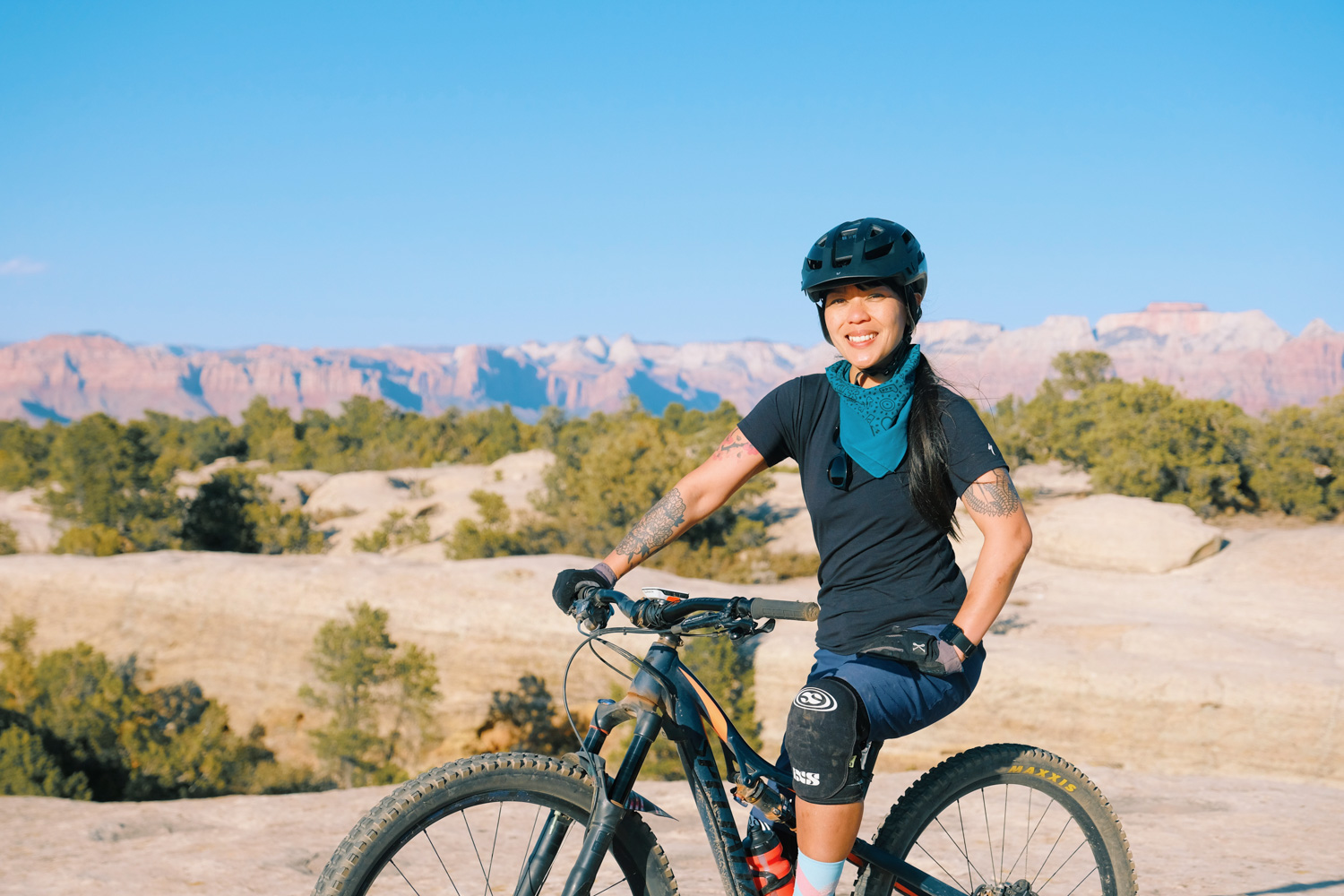
Enjoy this episode? Rate us on Apple Podcasts or wherever you listen. It’ll help other people find us. You can also share this podcast with a friend. Thank you for your support!
TRANSCRIPT
Note: This transcript was lightly edited and created using a transcription service. As such it may contain spelling errors.
Gale Straub – Narration:
Navigating Through is a special four-part She Explores mini-series made in partnership with Subaru.
Paulina Dao:
My relationship with adventure and travel really shifted to kind of focusing on areas in my backyard that I’ve never been to, or that I wanted to spend more time in..
Gritchelle Fallesgon:
I just started appreciating the small things a bit more instead of just having like that instant gratification of a big Epic view, you know.
Faith Briggs:
One way that I figured out how to carve space and time out for myself daily was literally just like driving around town, listening to music in my car and like singing at the top of my lungs. That was like definitely my happy place.
Anna Brones:
I mean, I think that the thing about not traveling a lot in the last year is that those moments feel so much more sweet and sacred, I think, than they did before. If the last year has taught us anything, it’s that, you know, uncertainty is always present. And it’s just whether we can navigate with that instead of against it.
Gale Straub – Narration:
The last year has been a challenging time to navigate. It’s been marked by loss and longing, but it hasn’t wholly dampened our sense of adventure or our tendency to dream: of far off places, of time in movement with loved ones, of changes we want to see in the world. And throughout, there’s been comfort in knowing a place we feel most like ourselves: behind the wheel, on the way to our favorite local trailheads, swim spots, and mountainsides. With our eyes in the rear view as much as they are looking at the road ahead, through this four part series we’ll tell stories about finding adventure locally, reconnecting with those close to us, and taking the side roads that bring us back to what drives us: connection, purpose, and creativity. I’m Gale Straub, your guide for Navigating Through. This is episode one: Unlock A Day Trip.
Gale Straub – Narration:
When I was a kid, my world was small but it felt really big. I grew up in a rural town in New Hampshire in a 200 year old house with an ancient barn that was filled with a lot of stuff that the previous owners had left behind – a chest overflowing with encyclopedias, broken chairs crammed in the haylofts, a dusty piano that sometimes played on its own when the wind swept through. My parents called it junk, but I knew better. They were relics. Once I even found a skeleton key, my mind wandering as I dreamed up all the doors it might open. I would turn it over in my hand, again and again, marveling at its weight, my imagination unlocked by possibility. It can be harder, today, to tap into that feeling of potential. But we can still find treasure in unexpected places– and unexpected times. [Sound of driving] For this series, I talked with 7 creative, adventurous women who feel a whole lot like themselves when they’re in motion, when they’re on their way to somewhere good.
Eunice Beck:
I think that there’s always just something about being in nature or being on the road that just really helps. I think just getting to experience anything new, whatever it is always inspires me.
Gale Straub – Narration:
They’ve all worked hard to have the privilege of making travel and adventure a big part of their lives, and in some cases their livelihoods, so when the pandemic caused a shutdown in the US in March of 2020 it was a catalyst for reflection. And while everyone out there listening has their own unique relationship with the outdoors and travel, in various ways we’ve all had our circles tighten with the responsibility to protect others and ourselves. For many of us, that’s meant staying close to home – an ability that in and of itself is layered with privilege. To have a place to call home, to be able to work from it, and to feel safe within its walls — those are all elements of this time that I don’t take for granted. And yet, sometimes the sameness just gets to me. Waking up just before the alarm, doom scrolling, drinking coffee, cracking open the clamshell of my laptop, video calls, working late, streaming TV, reading until I can’t keep my eyes open. I know, still, that my world is big but sometimes it just feels so small. When I was a little girl, I buried that skeleton key I found in the barn by a stone wall near the back of my dad’s garden. I’d hoped that another kid would find it one day and give it new life. But now I think I left it for me to unearth, a reminder that even if the world feels small, there is always more to discover if you leave yourself open to finding it. One of the guests for this series, artist and writer Anna Brones, emphasized the power of time in motion:
Anna Brones:
If you’re driving, not if you’re in the passenger seat, but if you’re driving, you’re focused on the road, right? I mean, you got to pay attention. Maybe you have a podcast on or music on, but you’re kind of just moving. And your brain sort of has space to sort of wander and how many other times in our everyday lives do we have that? We need that thinking time and we need that idea forming time. And I think that movement helps us to create space for that.
Gale Straub – Narration:
While for the most part long road trips are still of reach, or even restricted by pandemic protocol, we can still opt for something shorter. Coined by Alistair Humphreys, a micro adventure is an adventure that is short, simple, local, and inexpensive, yet still fun, refreshing, and rewarding. When packing up a vehicle for a day trip, we get to decide how far to go and control our own comfort level. It’s also our responsibility to do so in a sav, considerate way, following state and local guidelines, as well as best practices from the Center for Disease control, or CDC. The effects of a day trip are powerful. Inspired by my conversations for this series, I headed out on my own with my partner Jon as I test drove the Subaru Outback Onyx: from my town on a tidal river in New Hampshire, up to the White Mountains, ending at the ocean around sunset. Sometimes, stuck in my routine, I find it hard to make time for short adventures like these. It was a relief to talk with Paulina Dao, who works a 9-5 job and considers herself a weekend adventurer.
Paulina Dao:
Now that’s 2021 and coronavirus is still a thing. We really focused a lot on a lot of just like local adventures and a lot of day trips too. I don’t know. I hit, I’ve been kind of in this weird phase where I go back and forth like some third days where I’m just like, Oh my gosh, like leaving the house seems so scary. And it seems like just like such a huge undertaking to pack the car and drive out to do something for a couple hours before coming home. And there are other days where I’m just like, yeah, like I just want to be gone, but it’s been a kind of like a weird mixture of like emotions where I’m like super excited to go out. And then there are days where I’m just like, Oh my God, like, this seems like the worst thing ever.
Gale Straub:
How do you remind yourself of the benefits when you are in that moment of like, Oh, I don’t know that I want to do the planning or the packing for that 24 hours or less adventure.
Paulina Dao:
Sometimes it helps if I like count how many times I did not leave the house that week. And then I’m just like, Oh, okay. I should probably get outside and get some fresh air. And then another thing I try to tell myself is that I’m not going too far. I should go. And if I’m not feeling it, if it’s not super fun, like I can always turn around and go back home. And also I have a couple of friends who have been in my like outdoors pod and we, we see each other every once in a while and having people that I’m making plans with to like, Hey, we’re going to go skiing or we’re gonna try to go climbing or something. Having people who are kind of relying on me to be there, or like that I’ve couple of people that I’ve committed to really helps with Blake feeling that dread of like not wanting to leave the house.
Gale Straub:
Yeah. Accountability buddies, who you also know you’re on the same page with, from a safety perspective.
Paulina Dao:
Yeah.
Gale Straub – Narration:
Packing the night before helps too. My partner and I loaded up the Outback with snacks and face masks and hand sanitizer. We packed our backpacks with cameras. We wouldn’t need a lot for our day trip since we weren’t planning on many activity stops. But I looked forward to seeing mountains and the sea on the same day. The morning of our mini-road trip, the sky was different than it had been lately, a bright pale blue. Not like those others days that didn’t wake up.
Gritchelle Fallesgon:
It was really nice to just go find dirt like within city limits.
Gale Straub – Narration:
I talked with Gritchelle Fallesgon, a photographer and cyclist in Portland, Oregon, about the benefits of taking time to explore in your hometown.
Gritchelle Fallesgon:
I think it’s a, it’s a really great way to learn about what’s in your backyard to learn more about the city or place that you live in. So, as an example, my friend took me on this bike ride around East Portland, which is not an area I venture out too often, but we did this like really fun road ride that connected a bunch of single track and gravel roads through these various neighborhoods look out in suburbs. And, you know, we rode by this abandoned, like boy scout camp that had all these old forts. It was really like, cool to see this other aspect of Portland. I never knew existed. And it like really reminded me of when I used to be a dirt curious roadie when I lived in San Francisco, you know, I go around looking for trails to go do hashtag rode bikes.
Gritchelle Fallesgon:
Off-road like, that was like a whole thing years ago. And so, you know, it was really fun to leave my apartment and go explore all these different neighborhoods, looking for dirt to ride on. And so after all these years, like I kind of forgot about the joy of doing that, but like the joy of like, just exploring the neighborhood and finding trails to go right on. So it was actually really, really nice to feel that excitement again, to go exploring in the neighborhood. So yeah, these micro adventures are just a really great way to expand your knowledge of the city you live in.
Gale Straub – Narration:
Gritchelle’s talking about gravel bike riding, I grew up road tripping that way too. I don’t think my dad ever took a straight path anywhere — whenever he could drop off onto a back road, preferably dirt, he’d slow down as we passed working farms and run down mill buildings. Sometimes we’d pull over and step out, walk up to a cow and look it straight in its sad eyes. When I got older and started running, I’d trace the same back roads on my own two feet, kicking up dust and deja vus. Driving North in New Hampshire, these roads still feel like a book I’ve read before, a character’s name on the tip of my tongue. [drving sounds] For a section of our own micro adventure, my partner and I decided to drive the Kancamagus Highway, a 34.5 mile scenic stretch that winds through a hundred thousand acres of the White Mountain National Forest. I hadn’t known before stopping at a historical overlook that day, but the Kancamagus is named after the last chief of the Pennacook, who had tried to live in peace with British settlers in Dover, NH — where I live today — before they were betrayed in the late 1600’s. There’s so much more to learn about where I live. I so appreciate the ways in which stepping out of the everyday opens us up to more opportunities for understanding.
Faith Briggs:
It’s so easy to forget how those sensory feelings of just like sun on skin, wind on the back of your neck. Like just staring up into a green canopy, affect your mental health and sense of peace and calm. Balance is really important to me, having a spiritual connection with the world around me and being a good listener is really important to me. And I think when you spend time outside, you’re just reminded to listen in.
Gale Straub – Narration:
Faith Briggs, a filmmaker and runner, also has a homebase of Portland, OR. We talked about the importance of those micro moments in nature, and the gratitude she has for the access to that.
Faith Briggs:
Later on in the summer, I wish I had started doing it more because I live in Oregon and the coast is cold, but I got some surfing in, I got some fishing and I love being by the water even just like going out to visit sleep in a friend’s driveway in my car at the Oregon coast is like a, a huge little just moment for me to recollect.
Gale Straub:
Oh, Oh. And the coast is so beautiful. There it’s two hours I think from Portland. Yeah. It’s magical.
Faith Briggs:
Yeah. Yeah. It’s, it’s, it’s a magical place and it’s actually kind of funny I’m and I guess I should mention in terms of like local adventuring, I moved from New York, you know, I’d been living in Brooklyn for six years. I’d never had a driver’s license before I moved out to Portland, Oregon, and I got my driver’s license in order to contribute to a film project. I was working on where we had, you know, three people living in a van and driving, and I wanted to be able to help drive, but I never owned a car until the pandemic. I’ve always taken public transportation and ridden my bike. And finally, in may I bought my first car just because the risk of the pandemic and having a privilege of having an alternative way of getting around outside of public transportation was huge. So I think for me, it’s still something I’m remembering that I can do, like the fact that I can get up and put my adventure toys into the car and go do something by myself is still very much like a routine that I’m getting into. But I used to, you know, take the bus to get to forest park in town. And it’s either, it was either a six mile run from my house where I was living, or it was an hour and 15 minute bus ride just to get to like the local trails. So getting farther away and being independent about that still feels really new to me.
Gale Straub – Narration:
Because Faith’s work is grounded in sharing stories from diverse communities. I was curious to learn more about what the greater significance of micro adventures or day trips might be.
Gale Straub:
What do you think like when you kind of zoom out and think about the outdoor industry as a whole and the activities that are often romanticized, what do you think are some of the benefits of normalizing and like uplifting close to home adventures, micro adventures, like whatever, whatever you want to call those experiences that one can have in nature without going too far.
Faith Briggs:
It’s so many things. I, I certainly think that being more connected, locally encourages civic engagement and allows you to look at what is around them and what isn’t around them and what they have access to and what kind of access would be more ideal and more equitable in the places that we live. You know, I think not being allowed to go as far really kind of turns the mirror on what’s available close to home. Yeah. And I think that was one that, um, you know, I live in, I mentioned forest park because I mean, it’s pretty incredible. It’s one of, I think the biggest, I don’t, I don’t know the stats, but first pack is one of the biggest parks in a metropolitan city in the United States. And there’s over 83 miles of trail, um, within Portland, Oregon. And even though that’s the case, I work with a lot of youth from BiPAP communities and who come from a world that is contextualized by deficits statistics.
Faith Briggs:
And a lot of them aren’t having, haven’t really ever been encouraged to go out to forest park or somewhere else. So I guess with more local adventuring, I hope that there is, um, an understanding of celebrating those places that do exist close to home and increasing them in places where those kinds of green spaces are lacking. And I, you know, in terms of romanticizing that big things, I think it’s problematic when there’s only one story it’s problematic when we only see the macro adventure, when we only see the big summit, when we only see, you know, the expensive, hard get access to, or gain entrance to experiences. I think we just need a wider array of stories that exist and realizing that for some people, whether it’s working at like a butterfly pavilion in Chicago or being a part of urban agricultural movements on rooftops in Brooklyn, or it’s summiting multiple moms in the Pacific Northwest like that, all those places and stories have a lot of value, you know? So I think sometimes people are afraid that their narrative is going to be replaced or they’re afraid that someone’s being told that the thing that they value isn’t important anymore isn’t relevant anymore. And I think it’s, it’s more about widening the range of stories so that we can value all of those experiences.
Gale Straub:
Hmm. Yeah. I love that. That it’s for you and your story sharing. It’s a, there’s a more, is more approach. It’s not like you just said that just because we’re talking about the importance of city parks, that doesn’t mean that other parks or other, other places that have been highly valued are no longer valuable.
Faith Briggs:
Totally. Yeah. I think it’s just like the, there is no pie mentality. You don’t have to worry about someone getting the last piece.
Gale Straub – Narration:
Back to my day trap, driving through Franconia notch, the mountains rising on either side of the highway, the snow granite and hardwoods splendid together against this unbleached sky. The bright winter light meant the road was criss-crossed with lean shadows of skinny trees, creating dark stripes that contrast it against the salt stains on the road. The hour stretched until it wasn’t an ordinary Sunday until it was time to make our way back to the ocean.
Anna Brones:
Clearly swimming is so integral to my identity and creative practice right now. Like how many times have I talked about swimming?
Gale Straub – Narration:
This is Anna Brones again. She’s been doing a cold water swim every day since December 1st. She’s slowly built her tolerance up to the frigid temperatures, but she quickly became an enthusiast:
Anna Brones:
I’ve been in the cold water since every day, since the 1st of December. So in the beginning, I was just like focusing on breathing and resisting every urge that my body had to like get out of the water. And in those moments, like your mind is just so focused on that, but there’s kind of no space for anything else, which honestly is such a freeing feeling like just any anxiety or emotions or like it all just clears out, which is kind of a beautiful thing, especially if your mind is kind of on overdrive all the time.
Gale Straub – Narration:
Oh gosh. Doesn’t that sound lovely. The first time Anna told me about her swimming practice though, I was skeptical. It wasn’t until I tried it on February 14th this year that I started to understand.
Anna Brones:
But recently as it’s, you know, we’re kind of coming into spring, so it’s getting a tiny bit warmer, I guess, but I’ve been able to spend, like I have just like a few more minutes that feel like, I think about other things more than just the cold, but I wouldn’t say that my mind is wandering a ton. It’s probably more that I feel clarity. So then by the time that I get out, it’s almost like the brain has kind of like just hit the refresh button and they’ve kind of cleared everything out. And so then I have this kind of space for thinking about things.
Gale Straub:
The refresh button.. I wish I could just hit my forehead and have that happen.
Gale Straub – Narration:
After talking with Anna, I decided that I would finish our day trip by putting on my swimsuit and jumping into the Atlantic at high tide. It was 33 degrees out and sunny at short sands beach in York, ME when we pulled up and parked. The wind was whipping and I had butterflies in my stomach, it was actually comforting to know that the water temp was a couple degrees warmer than the air.
I already felt different before I took off my robe and started the slow walk into the water. I’d had no big revelations on our micro adventure, no great ideas, or stories of a lifetime to share. But I felt a subtle shift, like light shining through a keyhole, the precious weight of a skeleton key in my pocket.
Outro:
This was Episode 1 of Navigating Through, a four-part She Explores miniseries made in partnership with Subaru. All four parts are available in your feed now.
Featured in this episode are Eunice Beck, Faith Briggs, Gritchelle Fallesgon, Paulina Dao, Anna Brones, and me, Gale Straub. Learn more about each interviewee via the show notes or on the landing page at She-Explores.com.
For this episode, I test drove the Subaru Outback Onyx. Learn more at Subaru.com/outback.
Music in this series is by Josh Woodward.
This episode was hosted and produced by me, Gale Straub, with script editing by Hailey Hirst. Navigating Through is a She Explores mini-series and a production of Ravel Media.
Be the first to comment